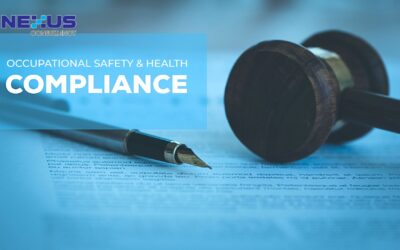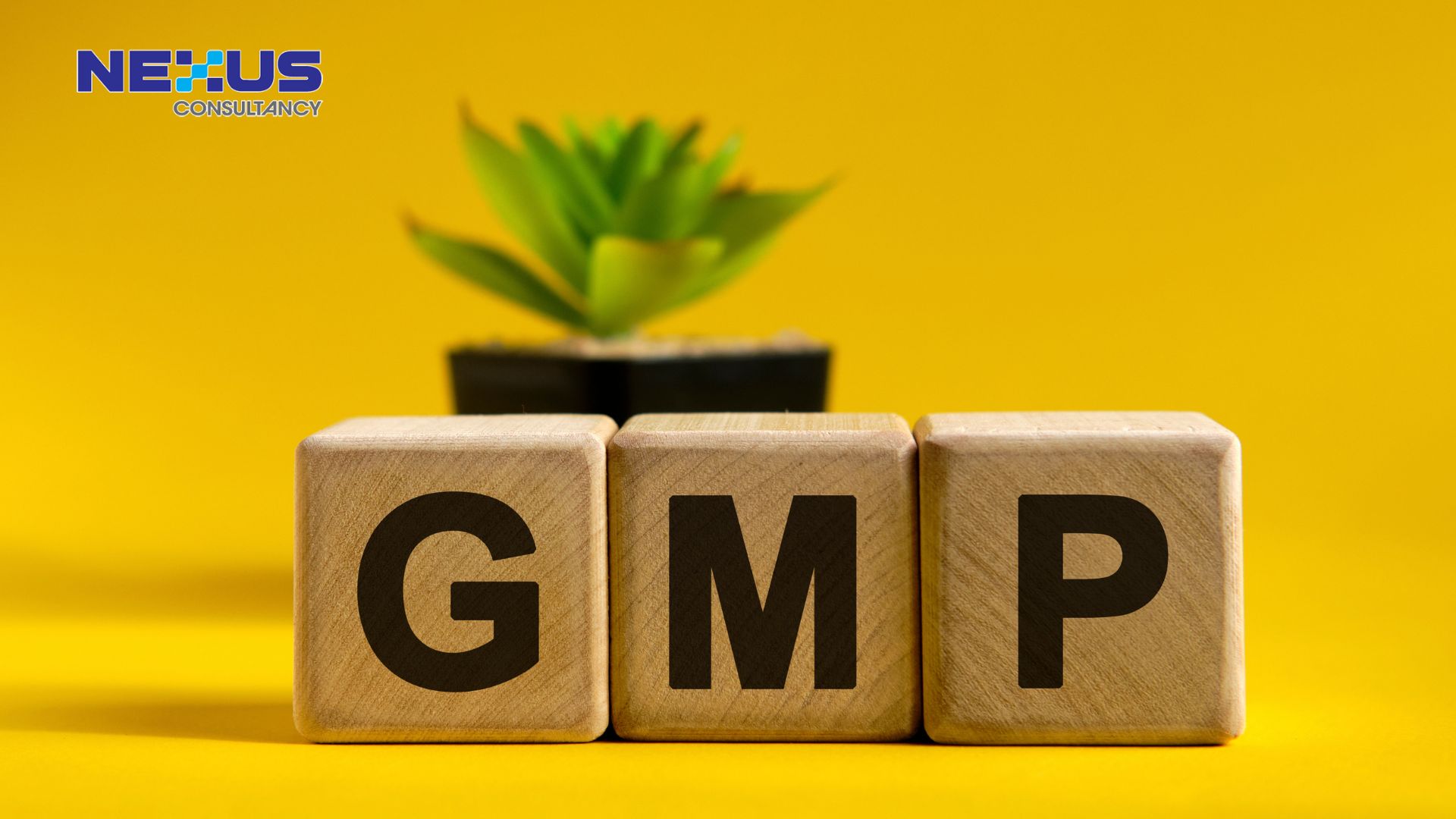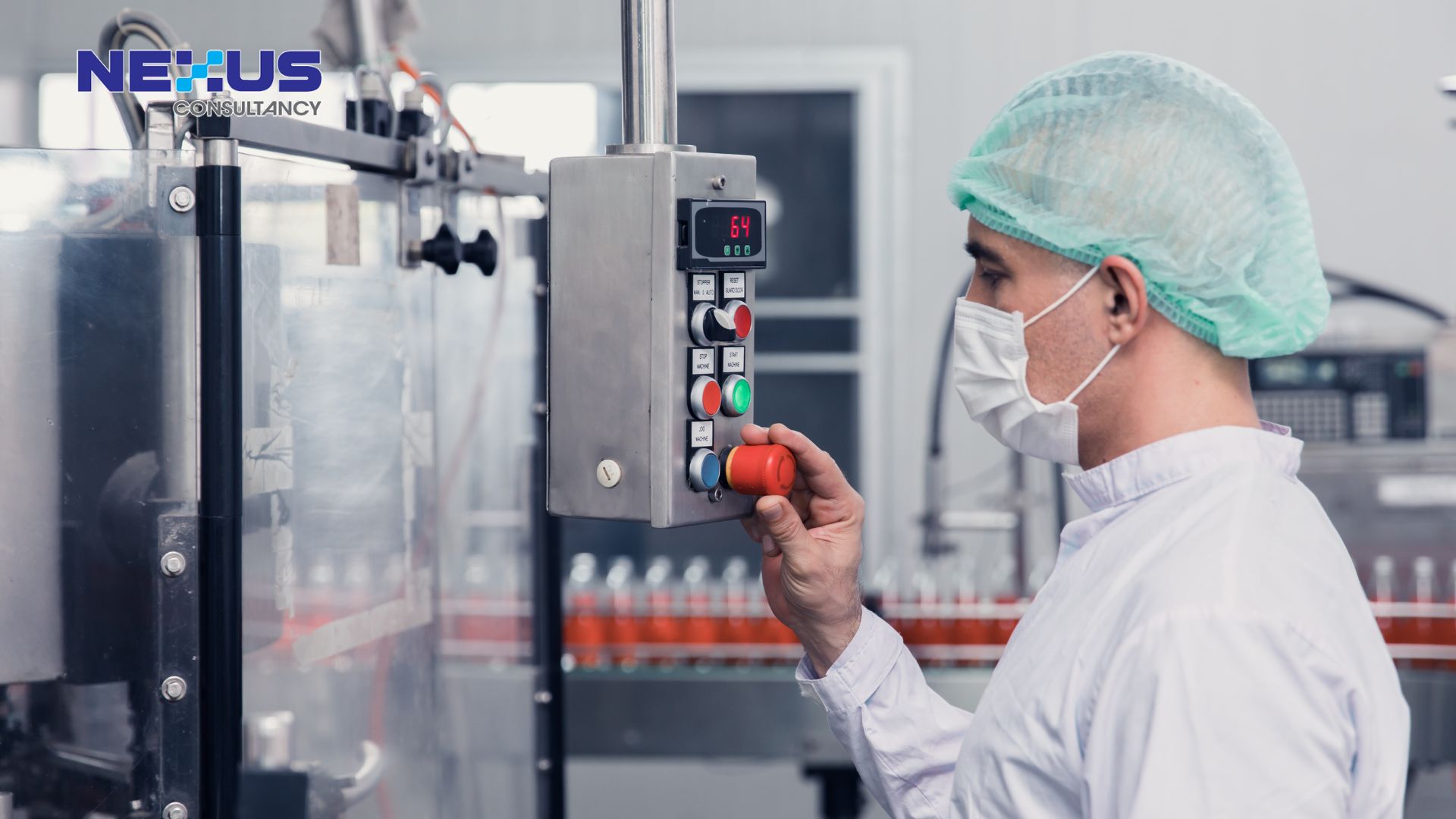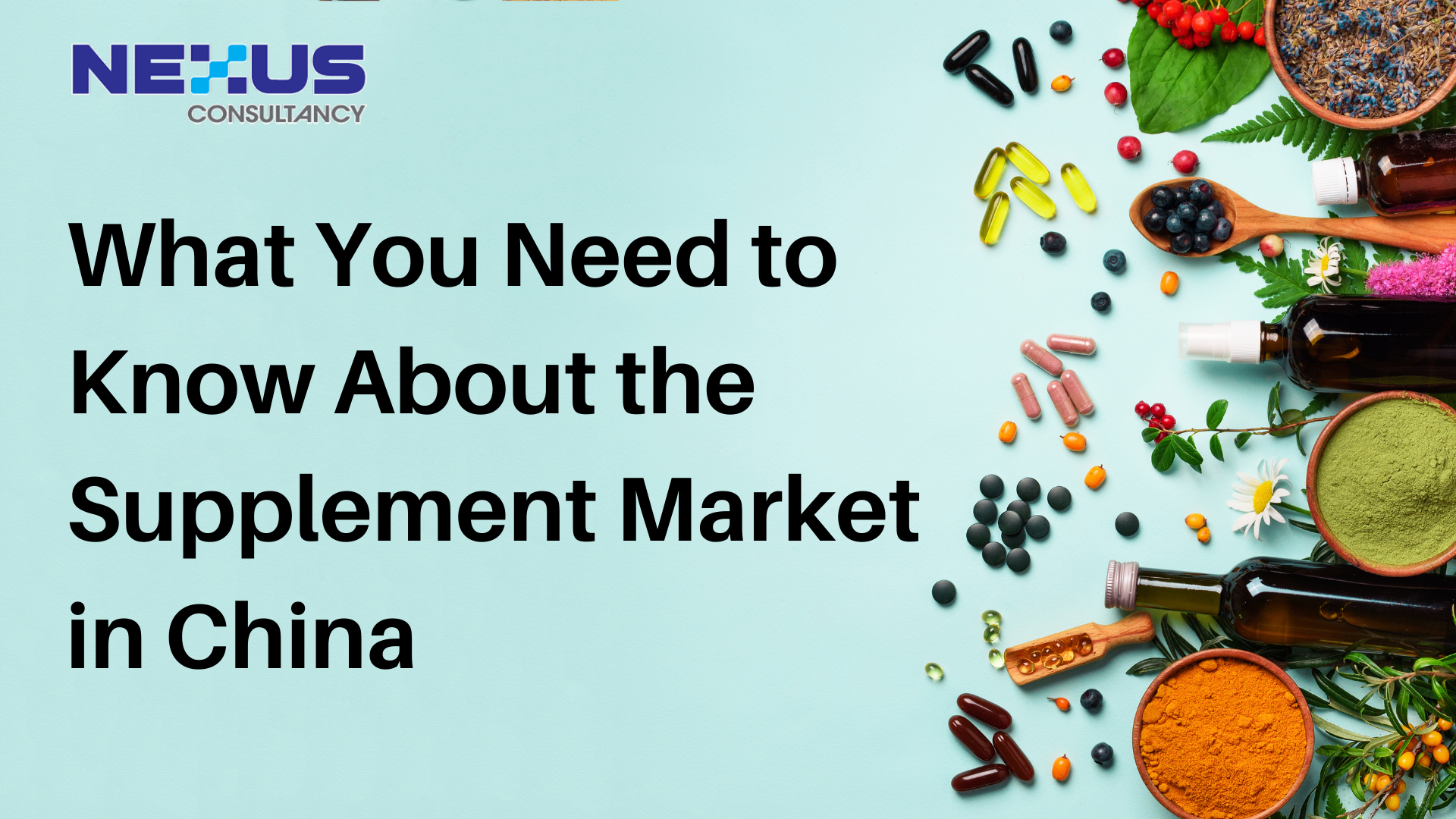
Healthy living has become a priority for the majority of Chinese people, particularly millennials. In fact, Chinese culture has long emphasized the importance of maintaining a healthy lifestyle. Chinese people are also more likely to spend more on vitamins and health supplements as their purchasing power grows.
By 2020, the market of vitamin and dietary supplements in China has reached CNY149 billion (US$22.3 billion), with a CAGR of 6.4% in the 2015-2020 period. This is why it has created a huge opportunity for health supplements’ brands and international brands to use their reputation, quality, and branding to target and attract consumers.
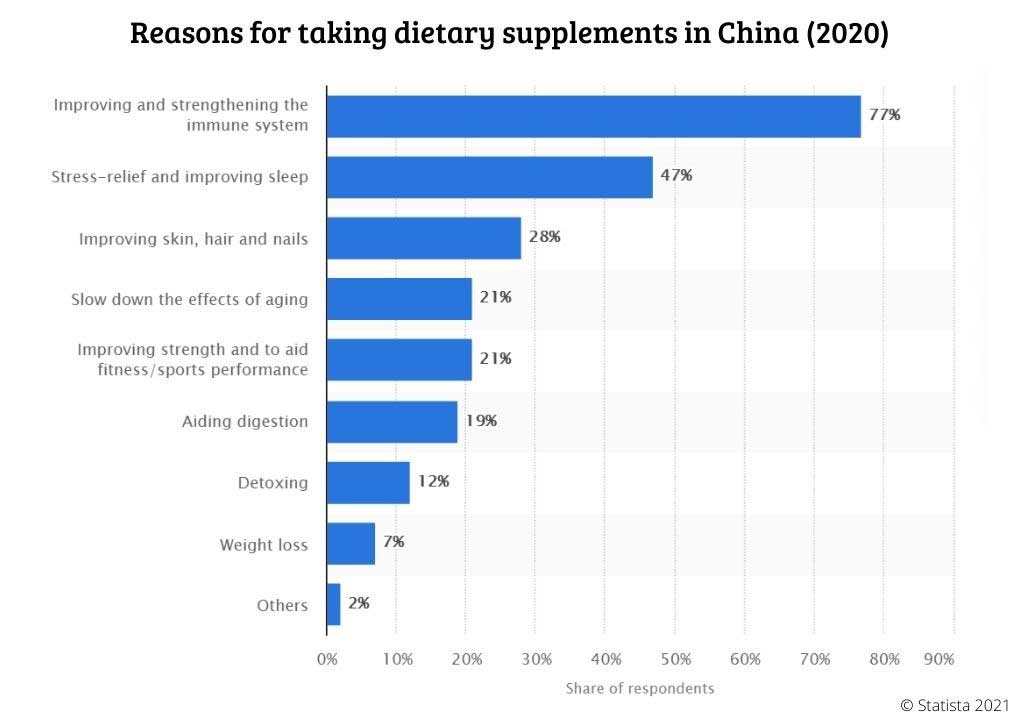
According to a survey conducted by Rakuten Insight in July 2020, around 77% of respondents living in Mainland China said they took dietary supplements to improve and strengthen their immune system. Only 7% of them took supplements for weight loss.
What drives the market of health supplements?
The size of the vitamin and health supplement market has shown an upward trend, owing to rising consumer awareness of health and sanitation issues in China. Vitamins C, E, and A, for example, are the most commonly heard vitamin supplements.
It’s also interesting to note that the Covid-19 pandemic resulted in a massive increase in demand for vitamins and health supplements, boosting sales of vitamins and supplements.
Following this trend, businesses should take the opportunity to expand their operations in China and capitalize on the long-term health supplement demand.
How to market your vitamins and health supplements in China?
Comply with Chinese regulations
You must follow the country’s regulations, just as you would in any other country. In fact, if you want to import your vitamins and health supplements in China, you must understand the exporting process well in advance before you ship your goods. Problems, or even rejection, at the customs can be highly costly.
If you want to know more about exporting health supplements to China, we highly recommend you to participate our upcoming webinar with CAIQTest Malaysia ” ( 小蓝帽)” webinar!
In this webinar, we will share with you the beauty and health food development and its’ market application in China and how to get your Blue Cap! Click the button and register now!
: ( 小蓝帽)
: / /
: : – :
:
:
More Article
Empowering Employees through ESG: The Role of Training and Awareness
Chief Operating OfficerEmpower your team with ESG training. ISO-aligned, practical, and impactful for SMEs in Malaysia.As businesses around the world embrace Environmental, Social, and Governance (ESG) principles, a common mistake is treating ESG solely as a boardroom...
ESG for SMEs: Simple Steps to Get Started (Even with a Small Team)
Chief Operating OfficerSimple ESG tips for SMEs. Begin your journey with support from trusted ESG consultants in Malaysia.In today’s business environment, Environmental, Social, and Governance (ESG) practices are no longer just for large corporations. Small and...
What Is Food Safety Culture and Why It Matters More Than Ever
Chief Operating OfficerLearn why food safety culture is a must-have for compliance, brand trust, and growth—backed by ISO consultants in Malaysia.In today’s competitive and tightly regulated food manufacturing landscape, compliance alone is no longer enough. To...
Why Proactive OSH Legal Compliance Is Good for Business Reputation
Chief Operating OfficerWorried about Malaysia’s OSH Act penalties or workplace audit readiness? Discover how proactive OSH compliance builds trust, reduces fines, and supports ESG goals.In today’s competitive market, companies are judged not just by their products or...



